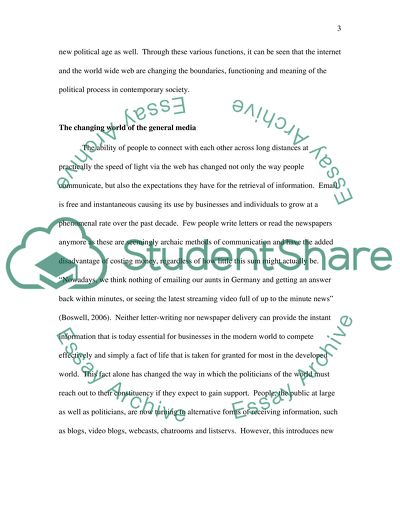Cite this document
(“Political Communication in the Electronic Age Essay”, n.d.)
Political Communication in the Electronic Age Essay. Retrieved from https://studentshare.org/social-science/1540199-political-communication-in-the-electronic-age
Political Communication in the Electronic Age Essay. Retrieved from https://studentshare.org/social-science/1540199-political-communication-in-the-electronic-age
(Political Communication in the Electronic Age Essay)
Political Communication in the Electronic Age Essay. https://studentshare.org/social-science/1540199-political-communication-in-the-electronic-age.
Political Communication in the Electronic Age Essay. https://studentshare.org/social-science/1540199-political-communication-in-the-electronic-age.
“Political Communication in the Electronic Age Essay”, n.d. https://studentshare.org/social-science/1540199-political-communication-in-the-electronic-age.


